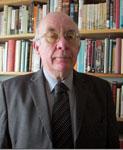Isaac Land
Isaac Land is a Professor of History at Indiana State University. He is the author of War, Nationalism, and the British Sailor, 1750-1850, (New York: Palgrave Macmillan, 2009). He also writes ‘The Coastal History Blog’ hosted on the Port Towns’ website. He can be reached at Isaac.Land@indstate.edu or on Twitter @IsaacLand2. See Isaac’s posts on this website
Joanne Begiato
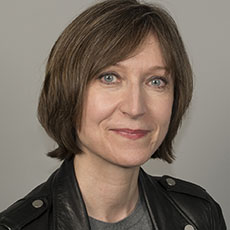 Joanne Begiato is Head of Department of History, Philosophy and Religion and joined Oxford Brookes in March 2005 from Murray Edwards College, Cambridge where she was a fellow and director of studies in history. Prior to this she was a Junior Research Fellow at Merton College, Oxford and read for her BA and PhD at the University of Durham. Joanne teaches social and cultural history. She specialises in the history of the family, marriage, masculinities, and law. With Professor Begiato students will investigate these topics from the perspective of emotions, material culture and gender in order to understand them better and make them come alive: exploring images of families, sailors, and soldiers; examining gendered objects and spaces; considering which weapons men used to beat their wives and which possessions quarrelling spouses fought over; and thinking about the meaning of men’s clothes and beards for masculine identity. Visit her blog to read more about her research. Follow Joanne @JBHist
Joanne Begiato is Head of Department of History, Philosophy and Religion and joined Oxford Brookes in March 2005 from Murray Edwards College, Cambridge where she was a fellow and director of studies in history. Prior to this she was a Junior Research Fellow at Merton College, Oxford and read for her BA and PhD at the University of Durham. Joanne teaches social and cultural history. She specialises in the history of the family, marriage, masculinities, and law. With Professor Begiato students will investigate these topics from the perspective of emotions, material culture and gender in order to understand them better and make them come alive: exploring images of families, sailors, and soldiers; examining gendered objects and spaces; considering which weapons men used to beat their wives and which possessions quarrelling spouses fought over; and thinking about the meaning of men’s clothes and beards for masculine identity. Visit her blog to read more about her research. Follow Joanne @JBHist
James H. Thomas
Dr James H. Thomas was Reader in Local and Maritime History 2006-2018, and is now Senior Research Fellow in History. James has six books to his credit, three of which deal with Portsmouth. He is the author of three Portsmouth Papers on maritime matters and of over 100 articles in peer-reviewed international, national and regional journals. Many of these examine, in various forms, the relationship between Portsmouth and the sea. His research interests embrace cultural, economic, maritime and social relations in Portsmouth 1650-1800, the East India Company’s eighteenth-century provincial impact, piracy in the Indian Ocean 1690-1820, and the celebration of George III’s birthday. He has successfully supervised two M.Res, one M.Phil and seven PhDs to completion. He has also supervised one M.St. for the University of Oxford and numerous dissertations at Masters level. He has acted as an External Examiner for the University of Winchester and has examined theses for the Universities of Exeter, Southampton and Winchester. A member of three editorial boards, he has also served on the Council of the Navy Records Society and that of the British Association for Local History. He is a Fellow of the Royal Historical Society, of the Society of Antiquaries and of the Historical Association.
See all of James’ publications here
See James’s posts on this website
Daisuke Higuchi
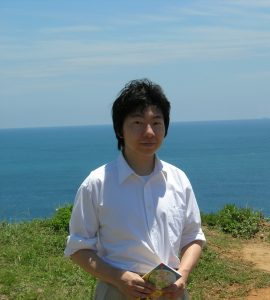 Daisuke Higuchi is a Professor in Graduate School of Humanities and has worked at Kobe University since 2000. His research interests centre on Japanese historical literature, particularly in finding the pluralistic perspective in the discourses that relate to war memory. He is the author of Writing the Turbulent Ages: the Culture and People in the Period of Translation (2009), The Metamorphosed Kiyomori: Rewriting The Tale of Heike (2011), and a large number articles related to war literature that have as a background port cities in modern Japan.
Daisuke Higuchi is a Professor in Graduate School of Humanities and has worked at Kobe University since 2000. His research interests centre on Japanese historical literature, particularly in finding the pluralistic perspective in the discourses that relate to war memory. He is the author of Writing the Turbulent Ages: the Culture and People in the Period of Translation (2009), The Metamorphosed Kiyomori: Rewriting The Tale of Heike (2011), and a large number articles related to war literature that have as a background port cities in modern Japan.
He is a member of The Port Cities Research Centre, Graduate School of Humanities, Kobe University, and until March 2017 he is the vice-director of the same centre. Currently one his central research themes looks into port cities that have a history of conflicts and co-existence between multiple ethnic and language groups and on how their cosmopolitan characteristic was preserved or altered in times of war, which has a tendency to divide both the enemies and friends.
Maya Hamada
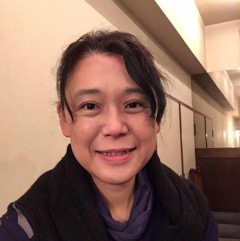 Maya Hamada is Associate Professor in Graduate School of Humanities and has worked at Kobe University since 1999. Her research interests centre on Chinese modern literature, especially female writers during 20th Century. She initially focused on the novels of the 1940s, with specific regard to the writings of Eileen Chang, but the scope of her research has since expanded significantly. She began to incorporate ‘girls’ and ‘female students’ as major keywords in her analyses, and at present is undertaking a project to trace the lineage of ‘The Image of Girls in Sinophone Literature’. This project takes into account a diverse range of periods and topics that range from late-Qing popular fiction to the 1919 May Fourth Movement, the Northern Expedition, the Second Sino-Japanese War, the Chinese Civil War, the Japanese occupation of Taiwan, the post-Cultural Revolution People’s Republic of China, and the situation in Taiwan after the lifting of martial law.
Maya Hamada is Associate Professor in Graduate School of Humanities and has worked at Kobe University since 1999. Her research interests centre on Chinese modern literature, especially female writers during 20th Century. She initially focused on the novels of the 1940s, with specific regard to the writings of Eileen Chang, but the scope of her research has since expanded significantly. She began to incorporate ‘girls’ and ‘female students’ as major keywords in her analyses, and at present is undertaking a project to trace the lineage of ‘The Image of Girls in Sinophone Literature’. This project takes into account a diverse range of periods and topics that range from late-Qing popular fiction to the 1919 May Fourth Movement, the Northern Expedition, the Second Sino-Japanese War, the Chinese Civil War, the Japanese occupation of Taiwan, the post-Cultural Revolution People’s Republic of China, and the situation in Taiwan after the lifting of martial law.
Kayoko Yukimura
 Kayoko Yukimura is a Research Fellow of JSPS (Japan Society for the Promotion of Science.) She originally studied early-modern Ireland in the international maritime warfare, and the results of her PhD project produced a dissertation, ‘The impact on Ireland of French Maritime Warfare, 1692-1713’ (the University of Dublin, 2014). Kayoko then turned her research interest to Ireland in the British naval administration in the long-eighteenth century (1692-1815). Based on the Admiralty Papers and mercantile documents scattered over the British Isles, she currently tries to illuminate how the English/British Admiralty employed Ireland in their cruiser and convoy system, military transports, victualling and accommodation of POWs. At the same time, she assesses how people in the British Isles and its colonies enjoyed the naval services provided at Irish ports. All these her case studies are expected to add a new naval aspect to the historiography of relationship between Britain and Ireland.
Kayoko Yukimura is a Research Fellow of JSPS (Japan Society for the Promotion of Science.) She originally studied early-modern Ireland in the international maritime warfare, and the results of her PhD project produced a dissertation, ‘The impact on Ireland of French Maritime Warfare, 1692-1713’ (the University of Dublin, 2014). Kayoko then turned her research interest to Ireland in the British naval administration in the long-eighteenth century (1692-1815). Based on the Admiralty Papers and mercantile documents scattered over the British Isles, she currently tries to illuminate how the English/British Admiralty employed Ireland in their cruiser and convoy system, military transports, victualling and accommodation of POWs. At the same time, she assesses how people in the British Isles and its colonies enjoyed the naval services provided at Irish ports. All these her case studies are expected to add a new naval aspect to the historiography of relationship between Britain and Ireland.
Ken Cozens
 Ken Cozens is an independent London based researcher with a lifelong interest in London’s eighteenth century economic history and voyages of exploration. Ken decided to specialize in maritime history and focus in particular on London merchant networks after taking early retirement. He subsequently undertook the post-graduate course in Maritime History at University of Greenwich, (Greenwich Maritime Institute), , where he was awarded an MA for his dissertation Politics, Patronage and Profit: A Case Study of Three 18th Century London Merchants, which explored the business networks of the merchant shipping partnership of the Wapping-based Camden, Calvert & King. Ken’s work is now fully focussed on his continuing interest and the importance of the social and global business connections of London’s maritime world. He is currently working on a number of collaborative projects with other scholars and institutions. You can contact Ken here. See Ken’s posts on this website
Ken Cozens is an independent London based researcher with a lifelong interest in London’s eighteenth century economic history and voyages of exploration. Ken decided to specialize in maritime history and focus in particular on London merchant networks after taking early retirement. He subsequently undertook the post-graduate course in Maritime History at University of Greenwich, (Greenwich Maritime Institute), , where he was awarded an MA for his dissertation Politics, Patronage and Profit: A Case Study of Three 18th Century London Merchants, which explored the business networks of the merchant shipping partnership of the Wapping-based Camden, Calvert & King. Ken’s work is now fully focussed on his continuing interest and the importance of the social and global business connections of London’s maritime world. He is currently working on a number of collaborative projects with other scholars and institutions. You can contact Ken here. See Ken’s posts on this website
Derek Morris
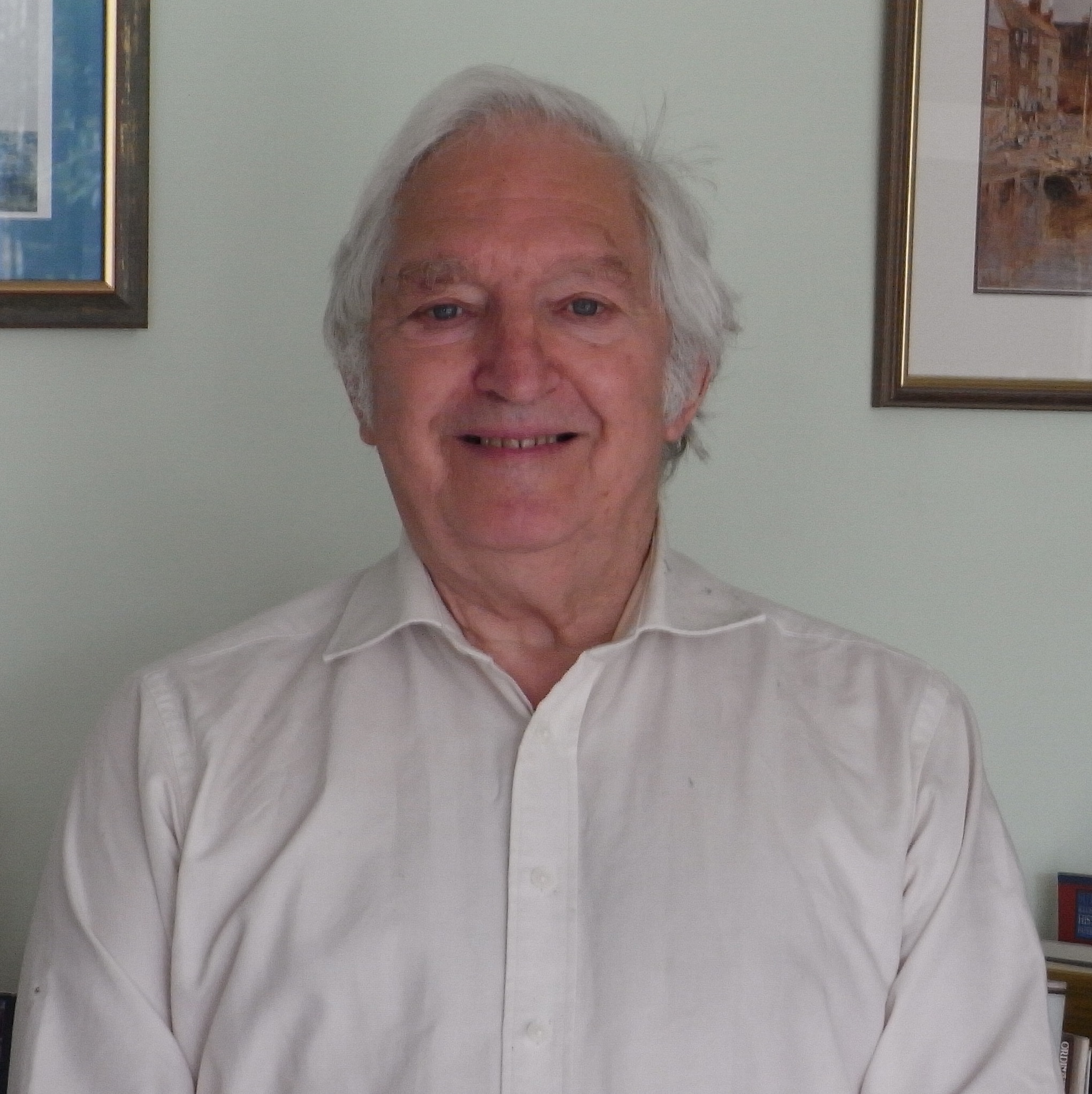 Derek Morris discovered many years ago that the great explorer and navigator, Captain James Cook, lived in the East London hamlet of Mile End Old Town from 1765 until his murder in 1779 in Hawaii, and that Derek’s family lived nearby. This discovery has led to twenty years of very deep research into the archives of London and has led to four well-regarded books, dozens of articles and talks, and a willingness to lead walks around London’s Sailortown and adjoining areas. The result has been to greatly widen our knowledge of the merchants and mariners, who lived in the area, and their world-wide trading connections, and challenged many well-established stereotypes of these east London parishes in the 18th century. See Derek’s posts on this website
Derek Morris discovered many years ago that the great explorer and navigator, Captain James Cook, lived in the East London hamlet of Mile End Old Town from 1765 until his murder in 1779 in Hawaii, and that Derek’s family lived nearby. This discovery has led to twenty years of very deep research into the archives of London and has led to four well-regarded books, dozens of articles and talks, and a willingness to lead walks around London’s Sailortown and adjoining areas. The result has been to greatly widen our knowledge of the merchants and mariners, who lived in the area, and their world-wide trading connections, and challenged many well-established stereotypes of these east London parishes in the 18th century. See Derek’s posts on this website
George Ackers
George Ackers is a Lecturer in Sociology. George’s intellectual interests centre on the sociology of work in transitions and how processes such as deindustrialisation affects ordinary peoples working lives sense of identity and community. His PhD research is entitled, ‘De-industrialisation and Masculine Work Identity in the Former Naval Repair Community of Medway, Kent’. This study examines the impact of de-industrialisation on masculine work identity for generations of Medway men, a work context which mirrors the royal dockyard in Portsmouth. Findings from this research challenge the idea that most men were/and are passive victims of industrial change. By contrast, the majority of men in this study managed to carefully adapt to and navigate the transition from industrial to post-industrial work whilst still retaining a ‘linear life


